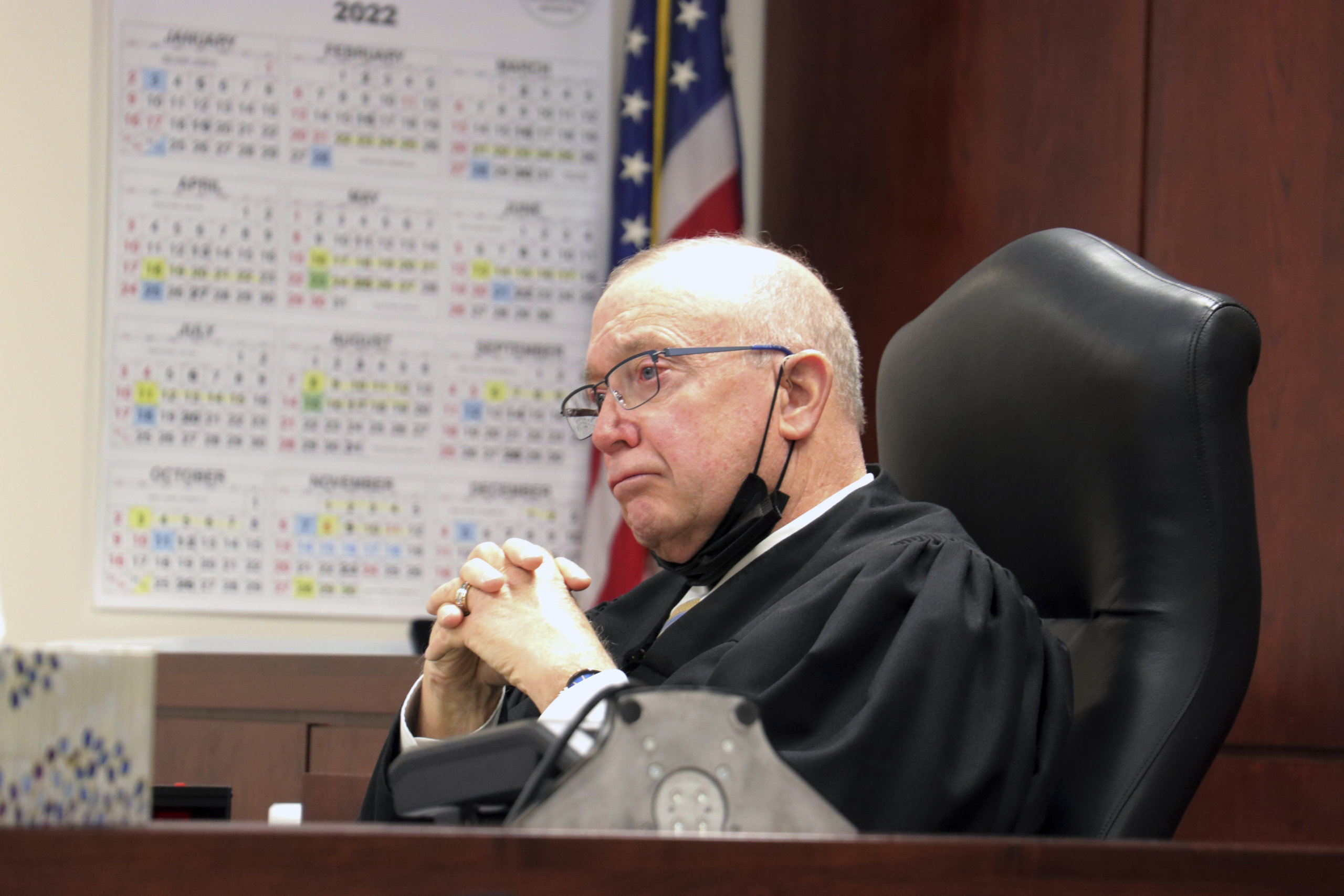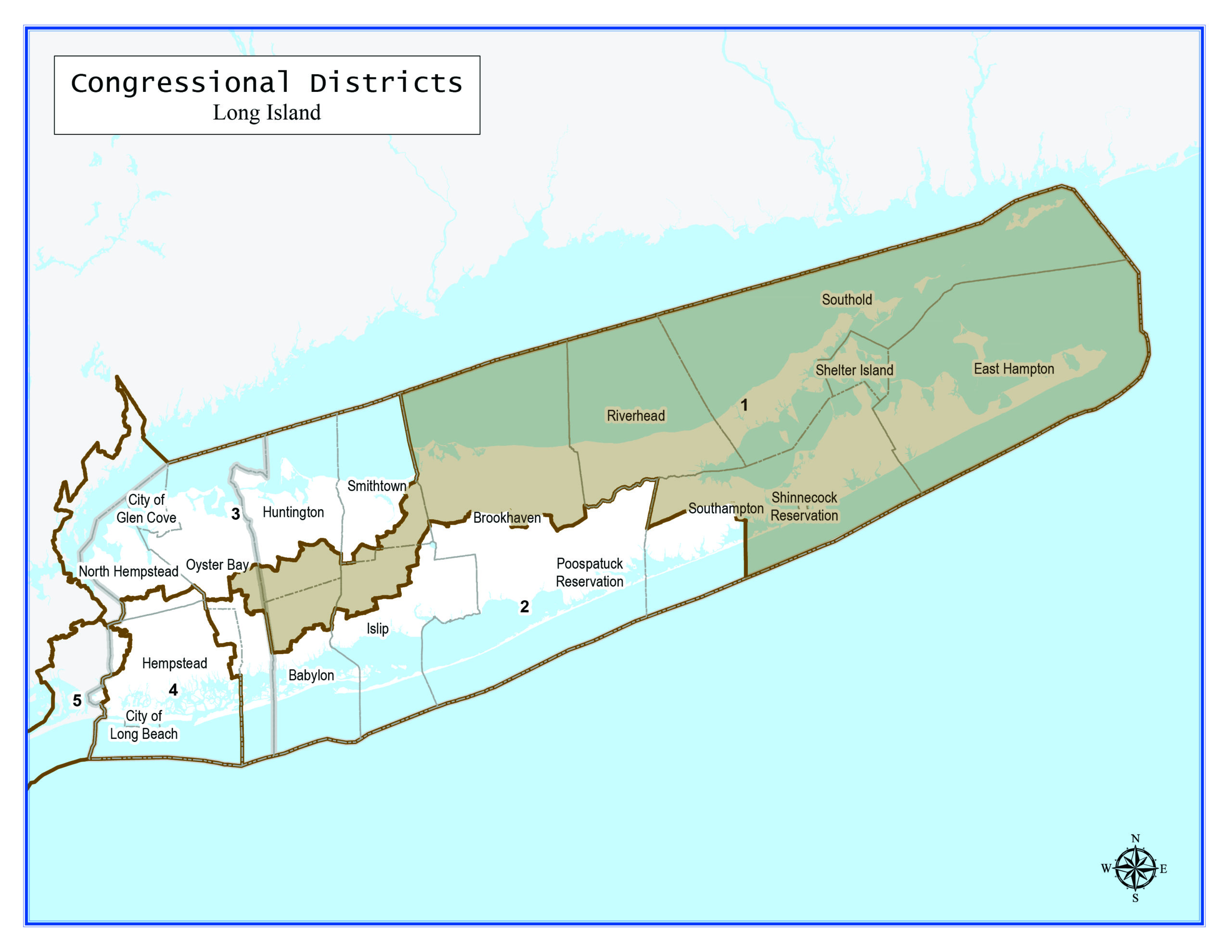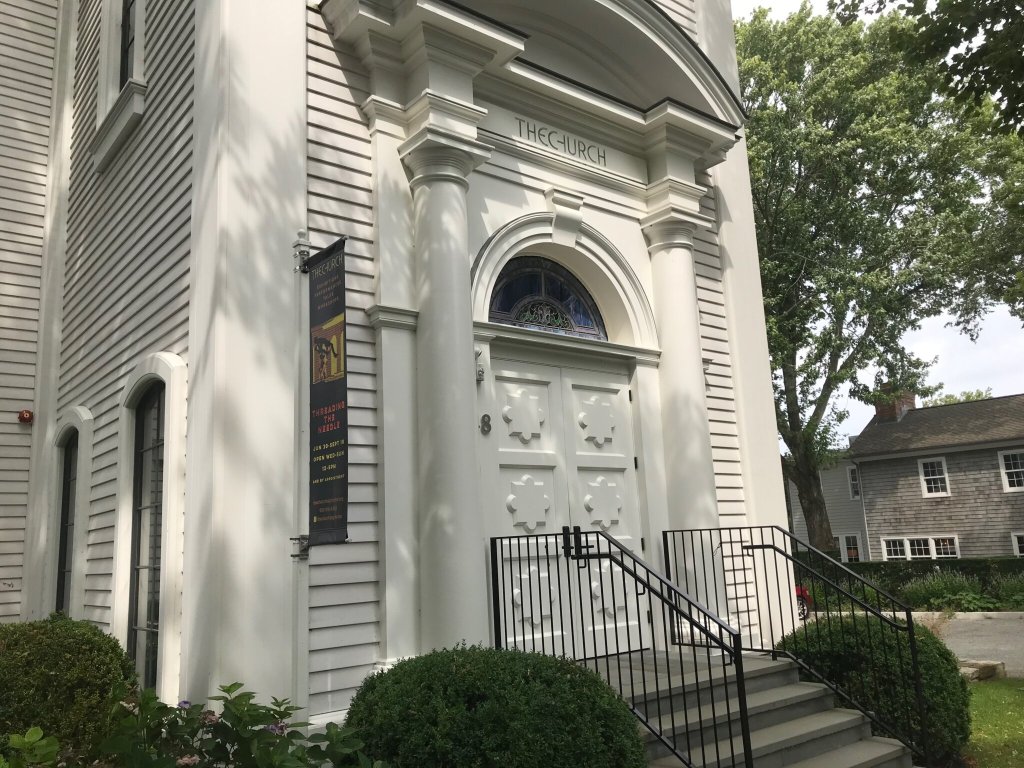Redistricting Redo: East End Maps To Be Revised After Court Ruling

New York State’s top court tossed recently redrawn congressional district maps, ruling that lawmakers illegally gerrymandered lines to favor Democrats — invalidating plans to stretch the East End’s district boundaries into Nassau County.
The state Court of Appeals ruling also applied to the redistricting of state Senate district lines, pushing the primary for those two races from June 28 to August 23. It is unclear if an ensuing challenge to the state Assembly lines may result in a similar rescheduling, but the Democratic and Republican gubernatorial primaries will stick with the original date.
“This is excellent news for the people of New York and yet another big-time defeat for [Gov.] Kathy Hochul and her Democrat allies,” said U.S. Rep. Lee Zeldin (R-Shirley), the East End congressman and GOP nominee facing several primary challenges in his bid to unseat the Democratic governor on Election Day.
The decision is a blow to Democrats’ chances of maintaining a majority in Congress. Republicans are widely seen as favored to flip the U.S. House of Representatives majority in this fall’s congressional elections, enabling them to block much of Democratic President Joe Biden’s agenda for the remaining two years of his first term. Democrats had hoped the aggressive New York map would offset Republican gains in states such as Texas and Florida, where Republican-controlled legislatures approved their own partisan maps as part of the once-a-decade redistricting process that follows the decennial U.S. Census.
“The enactment of the congressional and Senate maps by the Legislature was procedurally unconstitutional,” the justices ruled in a 4-3 decision. “And the congressional map is also substantively unconstitutional as drawn with impermissible partisan purpose, leaving the state without constitutional district lines for use in the 2022 primary and general elections.”

The court reasoned that Democratic leaders in Albany lacked the authority to redraw congressional and state Senate maps after the state Independent Redistricting Commission charged with crafting new maps failed to reach a consensus. The Appeals Court handed authority to draw new district maps to an expert, known as a special court master — Carnegie Mellon University fellow Jonathan Cervas — instead of the Legislature. The court ordered the new maps be ready by May 20.
“While we are disappointed with the court’s ruling, we remain confident in Democratic victories up and down the ballot this November,” said Jay Jacobs, the chairman of the Democratic Party’s state and Nassau County committees.
The state’s 1st Congressional District currently includes all of the five Twin Forks towns and eastern portions of the Town of Brookhaven, including half of Fire Island. Under the map that was thrown out, southwestern communities in the Town of Southampton were carved out into the 2nd Congressional District and the 1st District would have stretched through parts of the towns of Smithtown, Islip, Babylon, Huntington and — across the county line — a chunk of Oyster Bay town. U.S. Rep. Andrew Garbarino (R-Sayville), whose district covers the South Shore of western Suffolk County and eastern Nassau County, currently represents the 2nd Congressional District and would be the congressman for western Southampton town, if he wins re-election and if the scrapped maps had survived court challenges.
In the thrown-out maps, the 1st Assembly District, which currently covers the South Fork, Shelter Island and stretches west to Shirley, under the revision would have ended in Westhampton and include most of the North Fork. The 2nd Assembly District that covers the Town of Southold instead would have stopped at the Riverhead town line and pushed south into northern communities in the Town of Southampton. And the 1st State Senate District that covers the entire East End would have pushed further west to Old Field on the North Shore and shrunk eastward from Bellport to Westhampton on the South Shore.
The decision to toss those maps came four weeks after candidates had filed nominating petitions to get on ballots and six weeks before early voting was scheduled to start in the primaries slated for June 28.
“There’s a lot we still don’t know about how this impacts our campaign,” Suffolk County Legislator Kara Hahn (D-Setauket), one of several Democratic candidates running for the seat Zeldin is vacating, told supporters in an email. “What I do know is that we’re going to have to recalibrate quickly when the new district lines are set.”
Further casting doubt on what comes next, a group of New York voters asked a federal court on May 2 to reinstate congressional district maps that were tossed out. The lawsuit, filed in Manhattan, argued that even if those maps were unconstitutional, as state appeals judges found, it is too late to draft new ones. The plaintiffs pointed to a federal court order from 10 years ago that set New York’s congressional primaries on the fourth Tuesday in June, in order to make sure military and overseas voters had ample time to receive and return mail ballots.
“New York’s decision to wait several more weeks before adopting a new congressional plan as its federally mandated June 28 primary rapidly approaches is untenable,” the lawsuit says. “The state has an obligation to redistrict in a timely manner. Since it has failed to do so, this court must act.”
The plaintiffs were represented by Democratic attorney Marc Elias, who has pursued lawsuits over redistricting maps in other states. Former Congressman Jon Faso, who has been advising GOP voters in their lawsuits, called the filing the latest in a series of “desperate actions taken by Democrats seeking to preserve their unconstitutional gerrymander of congressional and legislative districts in New York State.”
Lawyers for the state’s Board of Elections had been reviewing whether the 2012 court order referenced in the lawsuit would necessitate approval by a federal judge of any shift in the primary date. That order, written when state politicians couldn’t agree on when to hold the Congressional primary, didn’t rule out an August date as long as there was federal judicial approval.
“This decision by no means precludes New York from reconciling their differences and selecting a different date, so long as the new date fully complies” with federal voting law, the order reads. “The court fully recognizes that a permanent primary date is best left to New York, but has acted as it must to preserve federally protected voting rights.”
-With Associated Press, Reuters and Ben Brachfeld



